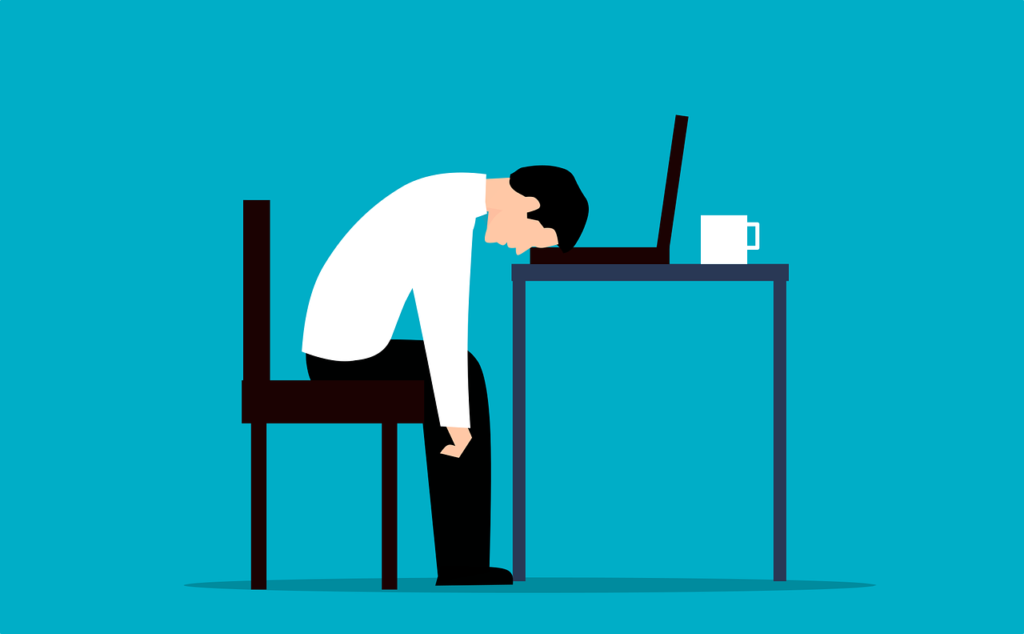I know many folks who read my articles are stuck in an unhealthy work environment and are daydreaming about exiting someday.
I’m continuously amazed at how bad a track record counseling agencies, hospitals, and clinics have for caring for their employees.
Especially given that our entire field is focused on mental health care. But nonetheless, here we are.

Here are four signs to look for to assess whether you’re in an unhealthy work environment as a therapist.
Evidence of An Unhealthy Work Environment
There are way more signs of an unhealthy work environment than I could possibly cover in a single article.
Unfortunately, I’ve experienced several unhealthy work contexts in my early days as a therapist. I’ll just name some of the items I observed and experienced in those contexts.
1) Little To No Oversight
Looking back, there’s one item that all the workplaces I had a tough time at had in common: I didn’t have enough support.
It’s possible to be completely surrounded by other therapists and staff but feel completely alone. Whether other people are just too busy to give you the time of day, or if your boss just can’t be bothered, this is a clear sign of an unhealthy work environment.
In an ideal world, one of the greatest advantages of working for someone else as a therapist is that you have built-in support. But, if it’s not easy to access consultation or training at your workplace, that is a red flag. It’s even worse if you don’t have someone checking in on you to see how you’re doing.
2) Emphasis On Productivity Over Quality Of Care
Ugh, don’t even get me started on this. If your employer is double-booking sessions, expecting you to use your lunch break to meet with clients who no-showed earlier in the week, and telling you to see more clients when you’ve communicated you’re burning out, this is a clear sign of an unhealthy work environment.
It’s worth noting here that often the direct boss or supervisor can be quite empathic and want the best for their employees, but they’re confined to the rules of the county or hospital system that they work for. Even if your immediate manager or supervisor is a kind soul, you may all still be trapped together in an unhealthy system.
3) Otherizing The Population You Serve
I’ve seen this happen at many workplaces, and am absolutely appalled by how much disgust many therapists experience toward their clients. If you’re noticing an “us vs them” approach in your workplace, this isn’t healthy.
In fact, it’s incredibly dangerous to see ourselves as better or different than our clients. The Stanford Prison Experiment is a great case in point for how good people can make dangerous decisions when we see folks as “other” from us.
4)Poor Boundaries

If you’re getting calls on your off hours or you’re expected to be checking email while on vacation, this is also a sign of an unhealthy work environment.
You should be afforded a lunch break and reasonable breaks throughout your day.
I remember once being chastised during group supervision at an agency I worked at because I needed to use the restroom during our two-hour meeting. In retrospect, being asked to sit for two hours straight without even being able to stand up is harsh.
This is a short list. But, I bet that if you’re in an unhealthy work environment at least some of these items are at play even if there are far more items on the list.
The Workplace vs. The Work Itself
Notice that my list is largely about the employer’s relationship with the employee, rather than the work itself. I’ve worked in settings where the work itself was incredibly challenging.
The days were long and stressful. But I felt very well supported. I felt like the clients’ needs were the highest priority, and I saw fellow therapists sent home early to rest on particularly tough days.
The nature of our work is challenging. And in some settings, it’s incredibly taxing. But the health of your work environment is separate from that.
Are You in an Unhealthy Work Environment?
Keep in mind, these issues can happen anywhere, even in your very own solo practice. In this case, you are both employer and employee. Whether you work for yourself or someone else, I encourage you to reflect on the health of your work environment.
It might be possible to try advocating for your needs wherever you see unhealthy practices. It’s also an option to set boundaries by going part-time. Or you could shift to a new workplace altogether.
As a field that’s built on helping others with their mental health, we can do better. And we can’t help others if we aren’t caring for our own workforce.
Maybe Change Is Needed
It is good to be aware of how stress may be impacting your life and work because often an unhealthy work environment can lead to burnout. I have a video where I share early signs of therapist burnout.
If your workplace is not protecting your health then you may be thinking about making the switch to only working part-time (that’s what I do!), or even exploring other career opportunities.
Here is an article where I share how I am able to support myself as a part-time therapist.
To get some more ideas of jobs you could pursue, check out 15 different career options for therapists.
Until next time, from one therapist to another: I wish you well!
-Marie
Image by Mohamed Hassan on Pixabay
Photo by Alesia Gritcuk on Unsplash
Leave A Reply